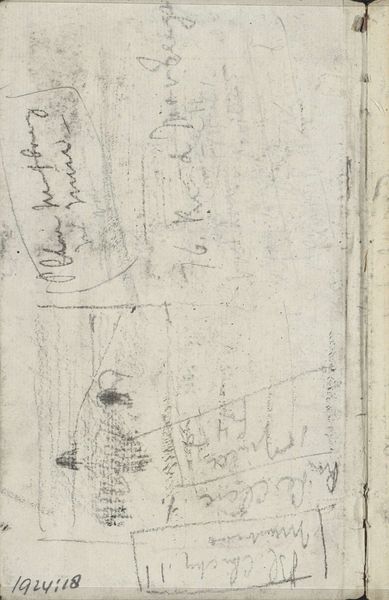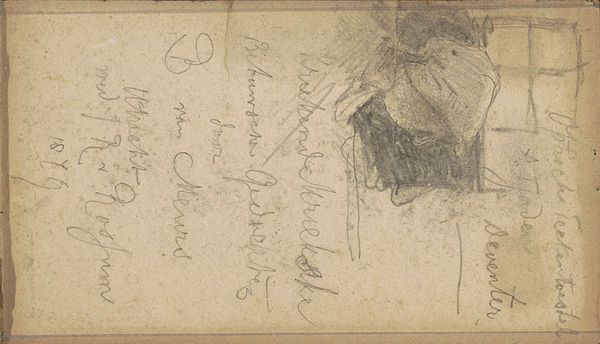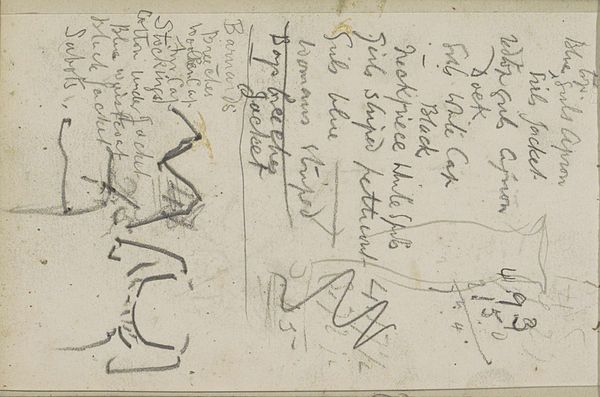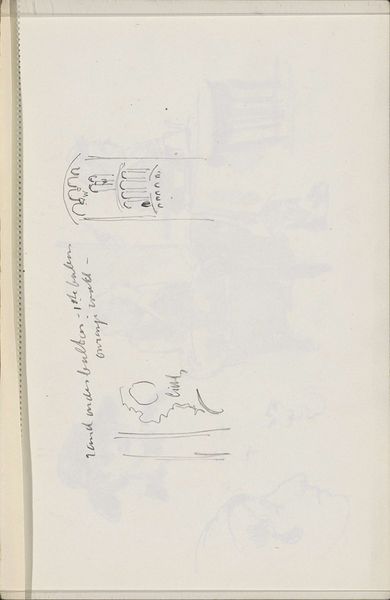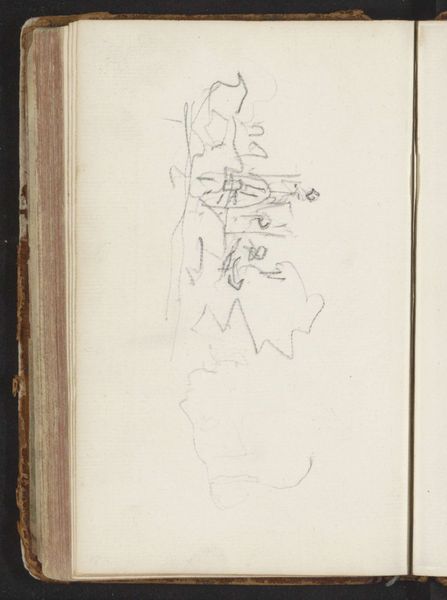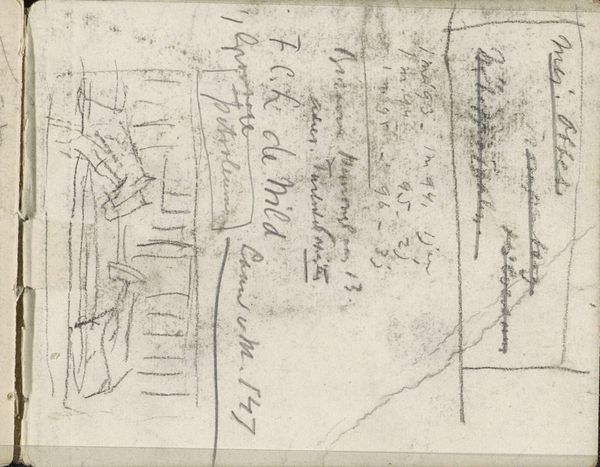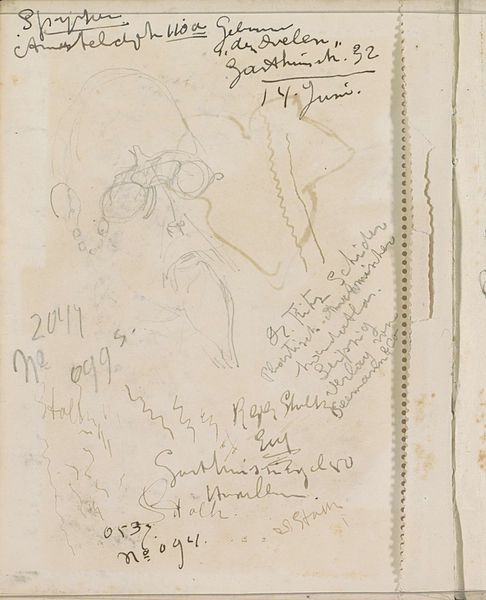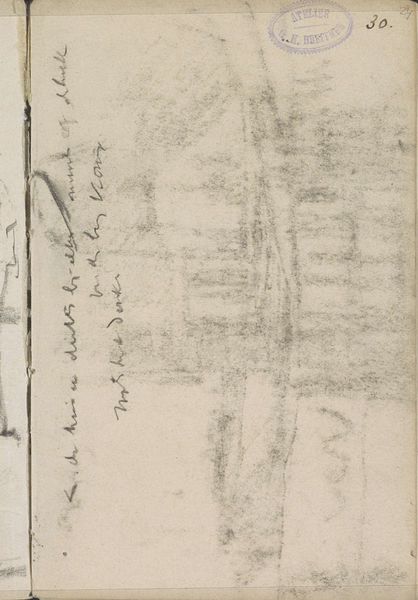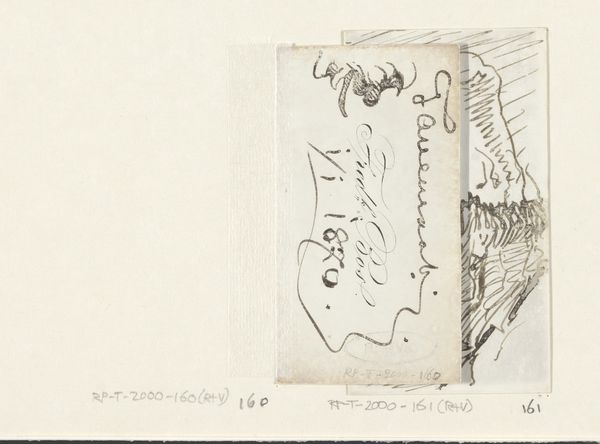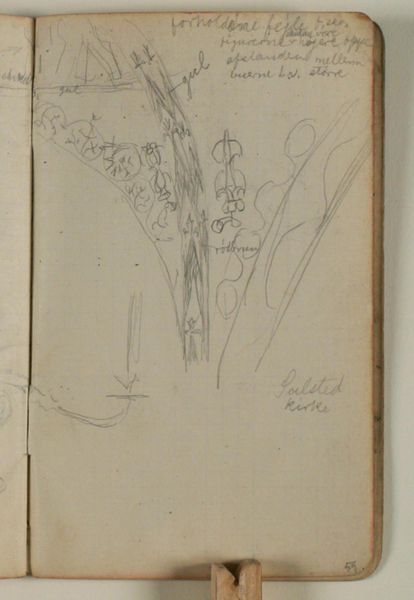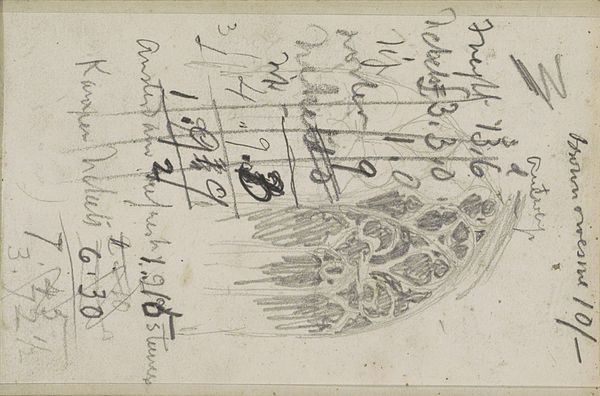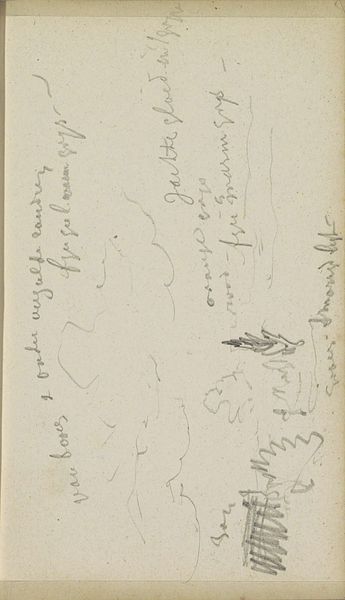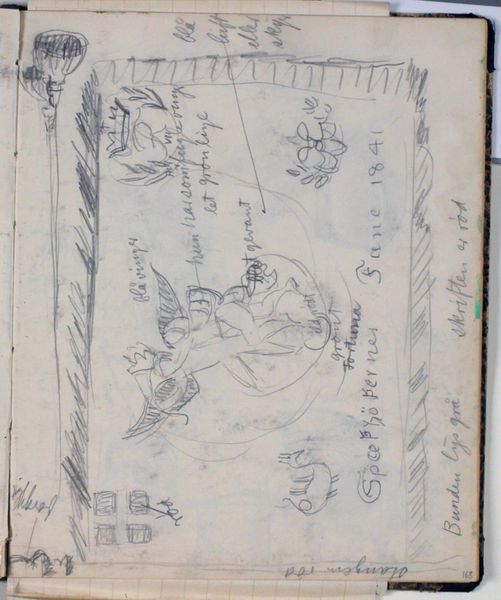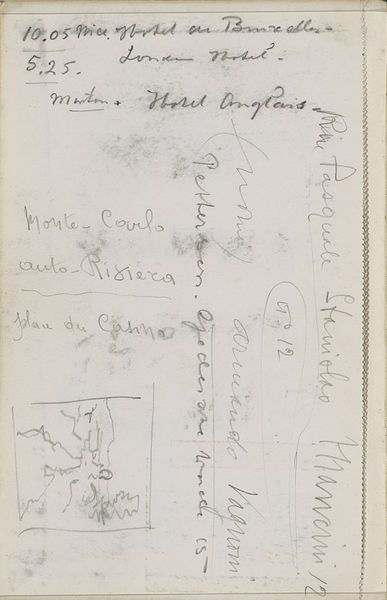
drawing, pencil
#
drawing
#
comic strip sketch
#
pen sketch
#
personal sketchbook
#
sketchwork
#
ink drawing experimentation
#
pen-ink sketch
#
pencil
#
pen work
#
sketchbook drawing
#
sketchbook art
#
initial sketch
Copyright: Rijks Museum: Open Domain
Editor: This drawing, "Vaas met bloemen op een tafel," or "Vase with flowers on a table," dates from around 1916 and is by Reijer Stolk. It's rendered in pencil and pen on paper. I notice the composition seems divided – one area is a detailed rendering, and another almost disappears into scribbled abstraction. What's your take on this interplay, and the cultural significance? Curator: It's precisely that tension between representation and abstraction that interests me. This drawing provides a glimpse into the artist's working process. Note the fragmented quality – a seemingly quick sketch, perhaps from a sketchbook, existing alongside what appear to be annotations of prices. The Rijksmuseum holding this gives it weight. Editor: So, it’s the juxtaposition of artistic expression and, well, market value that catches your eye? It seems such a private piece made it to the institution somehow. Curator: Exactly. Think about the historical context of early 20th-century art markets. How does the institutional context shape how we value such an informal sketch, which gives some sense of a quickly abandoned study for something bigger? The seemingly haphazard composition allows for reflection of what's worth paying and capturing; these scribbles point toward where public patronage could and would land. It highlights the political economy surrounding even the simplest floral arrangement. Editor: I didn't consider it that way. Seeing it as a comment on artistic value, or lack thereof at the time, in the artist's process changes everything. Curator: It forces us to question the very nature of artistic "value" – is it inherent, or is it socially constructed? And who decides? It shows the public life that something private now has. Editor: I’m really struck by that: How a casual doodle in a sketchbook speaks volumes about artistic production when put in public. Curator: Yes, exactly. It invites us to consider art not in isolation, but as inextricably linked to social, economic, and political forces. Editor: This has made me think about sketchbooks completely differently. They aren't simply private places. Thank you.
Comments
No comments
Be the first to comment and join the conversation on the ultimate creative platform.
